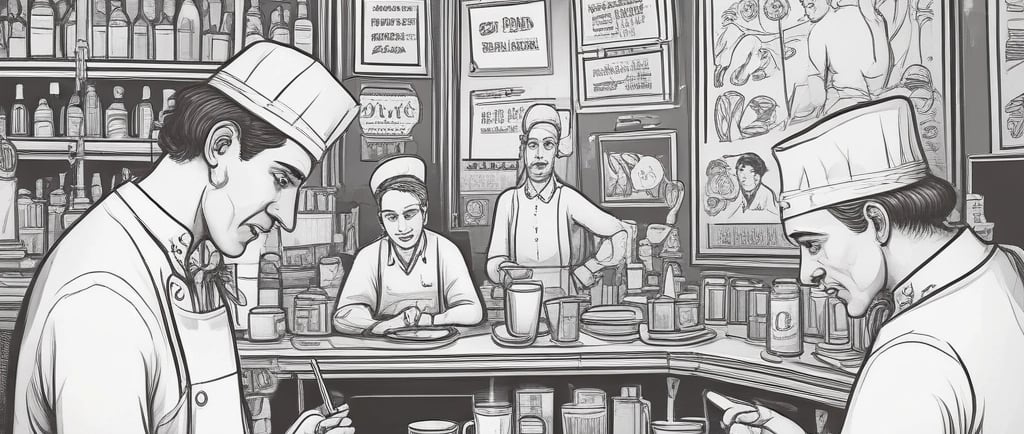The Power of Words: What Do You Convey When You Speak or Write?
Restaurants move fast. Communication makes or breaks a shift. Clear words save time, prevent mistakes, and build trust. Sloppy communication creates stress, conflict, and lost money. The good news? Communication is a skill anyone can improve.
9/18/20252 min read


Why Communication Matters
One wrong word can ruin a guest’s meal.
A sloppy note can send the wrong plate to the wrong table.
A careless tone can crush team morale.
Strong communication = smoother shifts, better service, more money.
1. Guest Communication
Spoken:
Tone matters. Speak like you’re happy to be there—welcoming, confident, respectful.
Clarity matters. Repeat orders back to show you understand. Fixing it early is cheaper than fixing it later.
Written:
Enter orders correctly—no guessing, no shortcuts.
Allergy notes? Write them clearly. Guests’ safety (and trust) depend on it.
Remember: Guests who feel understood tip better and come back more often.
2. Team Communication
Spoken:
Use short, clear phrases: “86 salmon,” “Hot plate behind,” “Need hands on 12.”
Don’t just yell across the room—make sure the right person hears you.
Respect matters—sarcasm and blame make a busy shift worse.
Written:
Prep lists, shift notes, checklists—legible and complete.
Group texts or apps—keep it professional. No gossip or drama.
Good communication builds trust. Teams that trust each other run smoother and stress less.
3. Manager Communication
Spoken:
Bring solutions, not just problems. “We’re out of limes—should I 86 margaritas or run to the store?”
Ask for feedback. Be open to learning.
Written:
Time-off requests → clear, polite, on time.
Messages and emails → professional, concise, respectful.
Managers promote employees who communicate responsibly because they’re easier to trust.
The Pitfalls of Poor Communication
Misheard orders = wasted food + upset guests.
Negative tone = toxic team culture.
Sloppy notes = managers lose trust.
The Rewards of Strong Communication
Guests: Happier, safer, more loyal → better tips.
Team: Less drama, more support, smoother shifts.
Managers: Trust you more → better hours, more responsibility, faster promotions.
Key Takeaway
Communication costs nothing, but it’s your most powerful tool. Every word you say—or write—is a reflection of your value.
Action Step
This week, focus on one area:
With guests → Repeat back every order.
With team → Use clear, respectful phrases during rush.
With manager → Send one clear, professional message instead of several rushed ones.
With yourself → Practice handwriting (yes, it matters).
At the end of the week, notice one way your improved communication made the shift smoother—or made you stand out.
